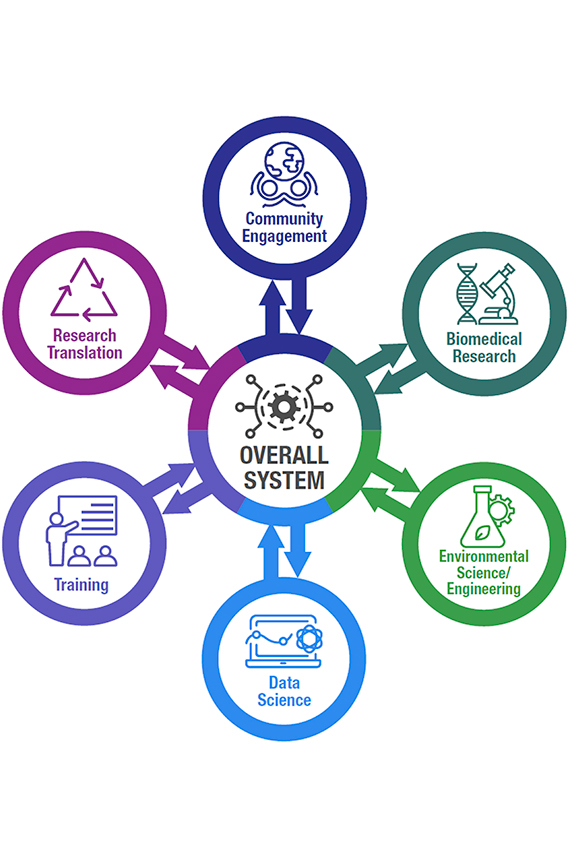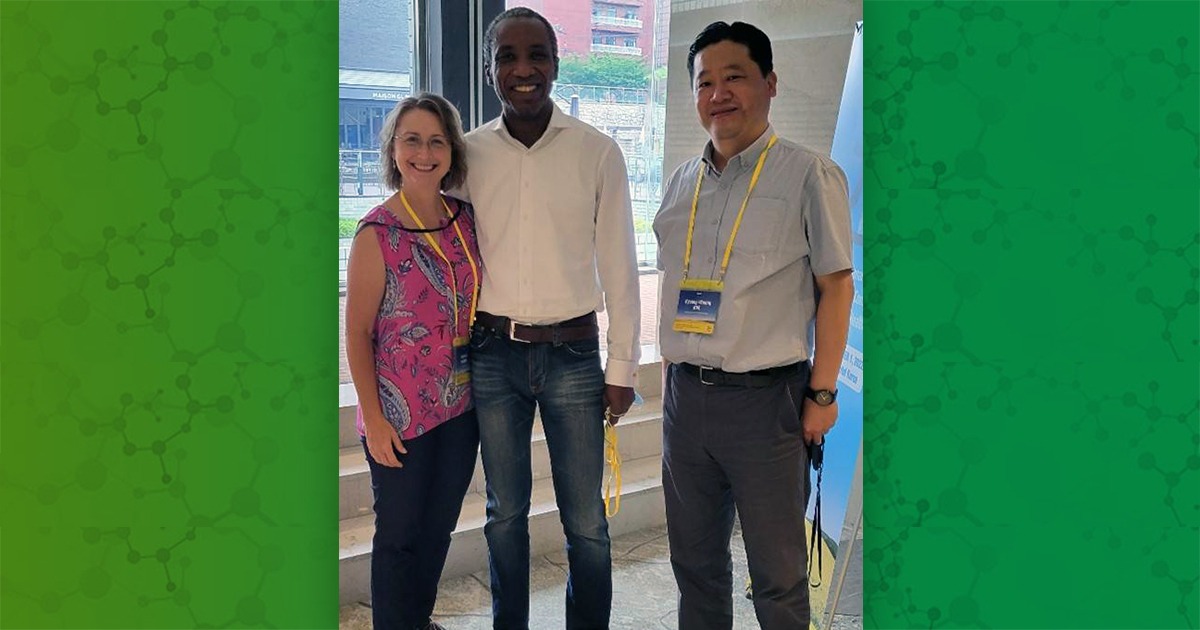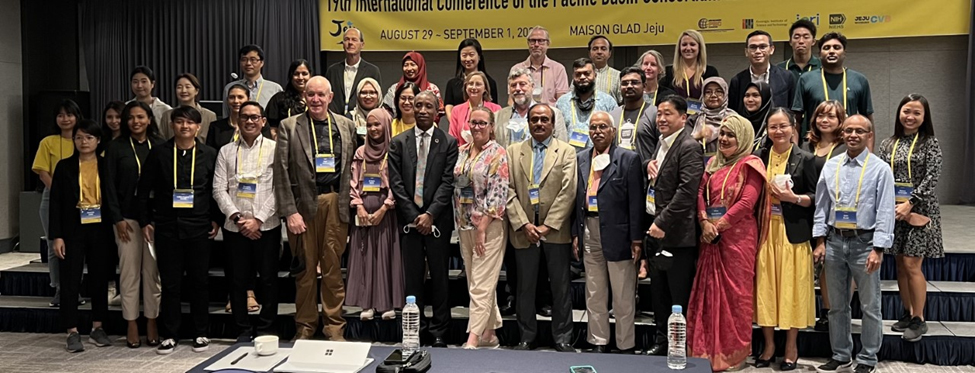The 19th International Conference of the Pacific Basin Consortium for Environment and Health, held Aug. 29 to Sept. 1 on Jeju Island, South Korea, brought together global experts to discuss advancing environmental health and translating scientific knowledge to action under a changing climate.
The conference was sponsored in part by the NIEHS Superfund Research Program (SRP). SRP has a longstanding relationship with the Pacific Basin Consortium (PBC) that allows SRP staff and grantees to facilitate PBC goals and engage in cooperative research to develop solutions for pressing environmental health challenges facing the Pacific Basin region and beyond.
“PBC provides a unique opportunity to hear diverse perspectives while continuing to build critical environmental health research networks,” said Brittany Trottier, SRP health specialist.
Protecting children’s health
Stephania Cormier, Ph.D., director of the Louisiana State University (LSU) SRP Center(https://tools.niehs.nih.gov/srp/programs/Program_detail.cfm?Project_ID=P42ES013648) and chair of the PBC Board of Directors, presented in a pre-conference workshop on air pollution and children’s health.
According to Cormier, children exposed to higher levels of environmentally persistent free radicals — air contaminants produced from the combustion of hazardous waste — are more vulnerable to respiratory disease.
“Children under the age of five are particularly vulnerable to air pollution,” Cormier said. “As children’s lungs and immune systems are still developing, exposure to toxic pollutants at early ages can result in life-long respiratory issues, creating substantial health and economic impacts.”
William Suk, Ph.D., NIEHS SRP director, also presented in a plenary session regarding programs to ensure children’s well-being. Suk’s presentation covered the e-ASIA Joint Research Program, an initiative to facilitate collaborative international research and promote innovation in the East Asian region.
Trottier and Michelle Heacock, Ph.D., SRP health scientist administrator, chaired poster sessions and trainee presentations covering topics ranging from prenatal exposures to quality of life in cancer patients.
Nutrition and disease prevention
The role diet plays in mitigating risks from environmental factors was presented by Bernhard Hennig, Ph.D., project leader and former director at the University of Kentucky SRP Center(https://tools.niehs.nih.gov/srp/programs/Program_detail.cfm?Project_ID=P42ES007380).
“Adopting positive lifestyle changes, such as consuming healthy diets rich in plant-derived nutrients and fiber, may reduce an individual’s vulnerability to environmental toxicant-related diseases,” Hennig said.
Hennig also joined researchers from Uruguay, Timur, and Bangladesh as part of a panel discussion focused on the interplay between nutrition and environmental health.
A shared commitment
Established in 1986, PBC provides a forum for researchers, health professionals, policymakers, and students across the Pacific Basin to meet, discuss, and present research priorities to address the unique challenges facing the region including geography and disproportionate access to technology.
 Similar to PBC objectives, SRP-funded centers combine biomedical research, environmental science and engineering, research translation, community engagement, training, and data science to understand and address a specific problem. (Graphic courtesy of Bill Suk)
Similar to PBC objectives, SRP-funded centers combine biomedical research, environmental science and engineering, research translation, community engagement, training, and data science to understand and address a specific problem. (Graphic courtesy of Bill Suk)Kyoung-Woong Kim, Ph.D., conference president and director of the International Environmental Research Institute at Gwangju Institute for Science and Technology (GIST), underscored PBC’s role in prioritizing information exchange, training, and collaborative research.
These components mirror SRP’s mission to protect people from hazardous environmental exposures and highlight the work of PBC and SRP as they continue to promote human and environmental health through education, stewardship, and support.
(Lauren Sprouse is a science communication specialist and Dylan Williams is a research analyst for MDB Inc., a contractor for the NIEHS SRP.)
Source link
factor.niehs.nih.gov




